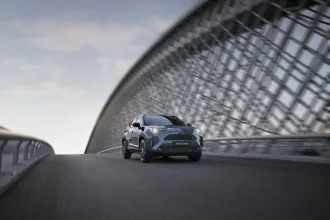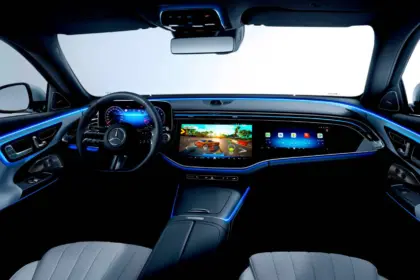Chinese electric vehicle startup WM Motor has filed for bankruptcy, marking the demise of a promising standout among China’s EV makers as price competition in the world’s largest auto market heats up. A court in Shanghai is handling the bankruptcy case, according to a filing dated Monday on the national enterprise bankruptcy information disclosure platform.“WM Motor’s planned reorganisation will introduce strategic investors from across the globe to achieve its rebirth,” the company said in a statement posted on its official Weibo account on Tuesday.
Chinese electric vehicle startup WM Motor has filed for bankruptcy, marking the demise of a promising standout among China’s EV makers as price competition in the world’s largest auto market heats up.
A court in Shanghai is handling the bankruptcy case, according to a filing dated Monday on the national enterprise bankruptcy information disclosure platform.
“WM Motor’s planned reorganisation will introduce strategic investors from across the globe to achieve its rebirth,” the company said in a statement posted on its official Weibo account on Tuesday.
The failed deal was seen as a survival move after two previous fruitless attempts by WM Motor to seek a listing in Shanghai’s STAR Market and Hong Kong.
Founded in 2015 by renowned auto veteran Freeman Shen, WM Motor was seen to be among rising Chinese EV startups Nio (9866.HK), Li Auto (2015.HK) and XPeng (9868.HK). Its backers included Chinese tech giant Baidu (9888.HK) and Shanghai’s state-owned asset regulator.
But the Shanghai-based startup struggled to eke out profits in the capital-intensive auto sector.
WM Motor’s annual losses doubled to 8.2 billion yuan ($1.13 billion) over the three years to 2021, according to its stock prospectus released in June 2022 for a planned Hong Kong IPO.
China’s passenger vehicle sales returned to growth in August year-on-year, ending a streak of losses since May, as deeper discounts and tax breaks for green vehicles boosted consumer sentiment.
Concerns remain, however, over consumer spending on big-ticket items such as cars amid a shaky post-COVID economic recovery.
($1 = 7.2871 Chinese yuan renminbi)










